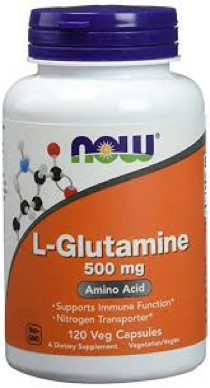Source: Beth Israel Deaconess Medical Center Jul 22, 2018 6 years, 9 months, 2 days, 32 minutes ago
Nearly 30 years ago, it was discovered that bacteria known as
Helicobacter pylori were responsible for stomach ulcers. Since then, antibiotics have become the primary therapy used to combat the
H. pylori infection, which affects approximately six percent of the world population and is also a primary cause of stomach cancer. But today the bacteria is growing increasingly resistant to antibiotics.
Now a study led by scientists at Beth Israel Deaconess Medical Center (BIDMC) and the Massachusetts Institute of Technology demonstrates that the amino acid glutamine, found in many foods as well as in
dietary supplements, may prove beneficial in offsetting gastric damage caused by
H. pylori infection. Reported in the May 2018 issue of the
Journal of Nutrition., the findings offer the possibility of an alternative to antibiotics for the treatment of
stomach ulcers.
"Our findings suggest that extra glutamine in the diet could protect against gastric damage caused by
H. pylori," says senior author Susan Hagen, PhD, Associate Director of Research in the Department of Surgery at BIDMC and Associate Professor of Surgery at Harvard Medical School. "Gastric damage develops when the bacteria weakens the stomach's protective mucous coating, damages cells and elicits a robust immune response that is ineffective at ridding the infection." Eventually, she notes, years of infection result in a combination of persistent gastritis, cell damage and an environment conducive to
cancer development.
Glutamine is a nonessential amino acid naturally found in certain foods, including beef, chicken, fish, eggs, dairy products and some fruits and
vegetables. L-glutamine - the biologically active isomer of glutamine - is widely used as a dietary supplement by body builders to increase muscle mass.
Hagen and her coauthors had previously shown that glutamine protects against cell death from
H. pylori-produced ammonia. "Our work demonstrated that the damaging effects of ammonia on gastric cells could be reversed completely by the administration of L-glutamine," explains Hagen. "The amino acid stimulated ammonia detoxification in the stomach - as it does in the liver - so that the effective concentration of ammonia was reduced, thereby blocking cell damage."
She and her coauthors, therefore, hypothesized that a similar mechanism might be at work in the intact stomach infected with
H. pylori. To test this hypothesis, the investigators divided 105 mice into two groups, which were fed either a standardized diet (containing 1.9 percent glutamine) or the same diet with supplemental L-glutamine (containing 6.9 percent glutamine) replacing carbohydrates for five percent of the total calories. After two weeks, the mice were subdivided into two more groups, with one group receiving a sham (fake) dose and the other group receiving a real dose c
ontaining
H. pylori. (This resulted in four separate mouse groups: an uninfected control group; an uninfected glutamine group; an infected control group; and an infected glutamine group.)
The mice were then followed for a 20-week period, during which time samples of blood and stomach tissue were removed. Blood was analyzed for antibodies to specific types of T-helper immune cells, which mediate the body's response to
H. pylori infection. Stomach tissues were examined for evidence of damage and cancer progression and also chemically analyzed for cytokines (inflammatory substances) which are produced by T-helper cells.
Their results showed that at six-weeks-post infection, the animals exhibited increased expression of three cytokines - interleukin 4, interleukin 10 and transforming growth factor-alpha mRNA. "These all play an important role in the stomach's ability to protect against damaging effects resulting from other responses to
H. pyloriinfection," explains Hagen.
Of even greater significance, by week 20, the study results showed that, among the
H. pylori-infected animals, the mice that were fed the L-glutamine diet exhibited lower levels of inflammation than did the mice that received the standard control diet.
"Because many of the stomach pathologies during
H. pylori infection [including cancer progression] are linked to high levels of inflammation, this result provides us with preliminary evidence that glutamine supplementation may be an alternative therapy for reducing the severity of infection," explains Hagen, adding that studies in human subjects will be the next step to determine the relevance of this finding in the clinical setting.
"
H. pylori bacteria infect more than half of the world's population and were recently identified as a Group 1 carcinogen by the World Health Organization," she adds. "Approximately 5.5 percent of the entire global cancer burden is attributed to
H. pylori infection and, worldwide, over 900,000 new cases of gastric cancer develop each year. The possibility that an inexpensive, easy-to-use treatment could be used to modify the damaging effects of
H. pylori infection warrants further study in clinical trials."
Reference: Beth Israel Deaconess Medical Center
